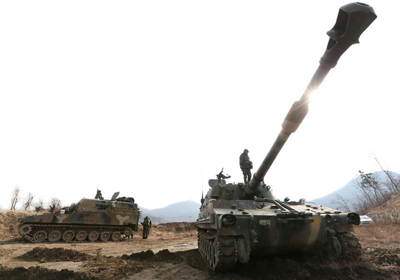Class News
Lee Sigal '64 on Korea
Path to peace in Korea
Sustained diplomacy with China will ease tensions in Asia
Op-Ed by Lee Sigal '64
Boston Globe
April 12, 2013
 Lost in the amped-up bombast out of Pyongyang in the past few weeks, North Korea's third nuclear test demonstrated that it is edging ever closer to equipping itself with dozens of nuclear warheads capable of being delivered by missiles. It plans to restart its nuclear reactor at Yongbyon to generate more plutonium and will continue enriching uranium for weapons. And it may be moving to test-launch a new missile capable of reaching Japan or possibly Guam.
Lost in the amped-up bombast out of Pyongyang in the past few weeks, North Korea's third nuclear test demonstrated that it is edging ever closer to equipping itself with dozens of nuclear warheads capable of being delivered by missiles. It plans to restart its nuclear reactor at Yongbyon to generate more plutonium and will continue enriching uranium for weapons. And it may be moving to test-launch a new missile capable of reaching Japan or possibly Guam.
The United States and China responded by cooperating to tighten Security Council sanctions, prompting Pyongyang to erupt in a bristling display of rhetorical bellicosity — as it always does whenever Washington and Beijing work in concert.
Their discordant reaction is just what it sought. As Beijing moves to calm Pyongyang down, many in Washington criticize China's unwillingness to bring North Korea to its knees as evidence of its duplicity. Yet antagonizing Beijing will only deepen insecurity in Northeast Asia, not put more pressure on Pyongyang.
After the nuclear tests set off renewed talk in Seoul and Tokyo about building their own nuclear arms, Washington understandably moved to reassure the allies by flexing its deterrent muscle. Yet deterrence alone will not assure calm on the Korean peninsula. The way to reduce the risk of clashes is to begin a peace process in North and South Korea in addition to holding negotiations to curb the North's nuclear and missile programs. Pyongyang has long said it wants a peace treaty formally ending the Korean War. Finding out whether it means what it says is in the security interests of South Korea and the United States, especially now that North Korea is nuclear-armed.
The second problem is that the steps taken to reassure US allies have also antagonized China — joint exercises that included practice bombing runs by B-52 and B-2 bombers and the dispatch of F-22 stealth fighters and an attack submarine to Korea, expanding missile defenses, and helping South Korea develop longer-range ballistic missiles to add to the long-range cruise missiles it recently deployed. It is unrealistic to expect China to abandon North Korea as the United States moves to shore up its own alliances.
No chorus of disclaimers from Washington will persuade Beijing that US military rebalancing with Asia is not aimed at containing Chinese power. Washington also needs to seek a political and diplomatic rebalancing with China, and encourage its allies to do the same. Cooperation has to be a two-way street.
There needs to be discussion of urgent security issues, among them, exploring a naval buffer zone along China's coast in return for China's acceptance of a comparable no-go zone in the waters off Japan; greater US restraint in arming Taiwan in return for greater Chinese transparency about its military plans and programs; and plans to ease tensions in the South China Sea.
There should also be consultations to address the two states' mutual vulnerability in the domains of cyberspace, nuclear weaponry, and space. Consultations might result in commitments to forgo cyber attacks on each other's critical infrastructure, acknowledgment of mutual deterrence (US acceptance of China's retaliatory capability as legitimate or a pledge of no first use of nuclear weapons against each other), and a ban on attacks on or interference with one another's satellites.
Such an approach would benefit South Korea, which does not want to be entrapped in a revived cold war between the United States and China. It could also ease pressure on President Park Geun-hye from her party's right wing to shy away from engagement with North Korea, even though it is in South Korea's interest to nurture much-needed change in the North and counter rising Chinese economic influence there.
Easing of US tensions with China could also counter the rise of rightists in Japan's Diet who believe in a "Japan that can say no" — to the United States — and who are pushing Prime Minister Shinzo Abe to confront China in order to expose US unreliability. Realists in Tokyo still support both the US alliance and engagement with China, as does the business community, which depends on China trade.
Despite all the talk of beefing up deterrence and tightening sanctions, the only way to head off a looming security nightmare in Asia is to try to move toward peace in Korea and rapprochement with China. Sustained engagement and diplomacy may not work, but unlike disengagement, isolation, and military rebalancing, they at least have a chance of success.
Leon V. Sigal is director of the Northeast Asia Cooperative Security Project at the Social Science Research Council in New York.

